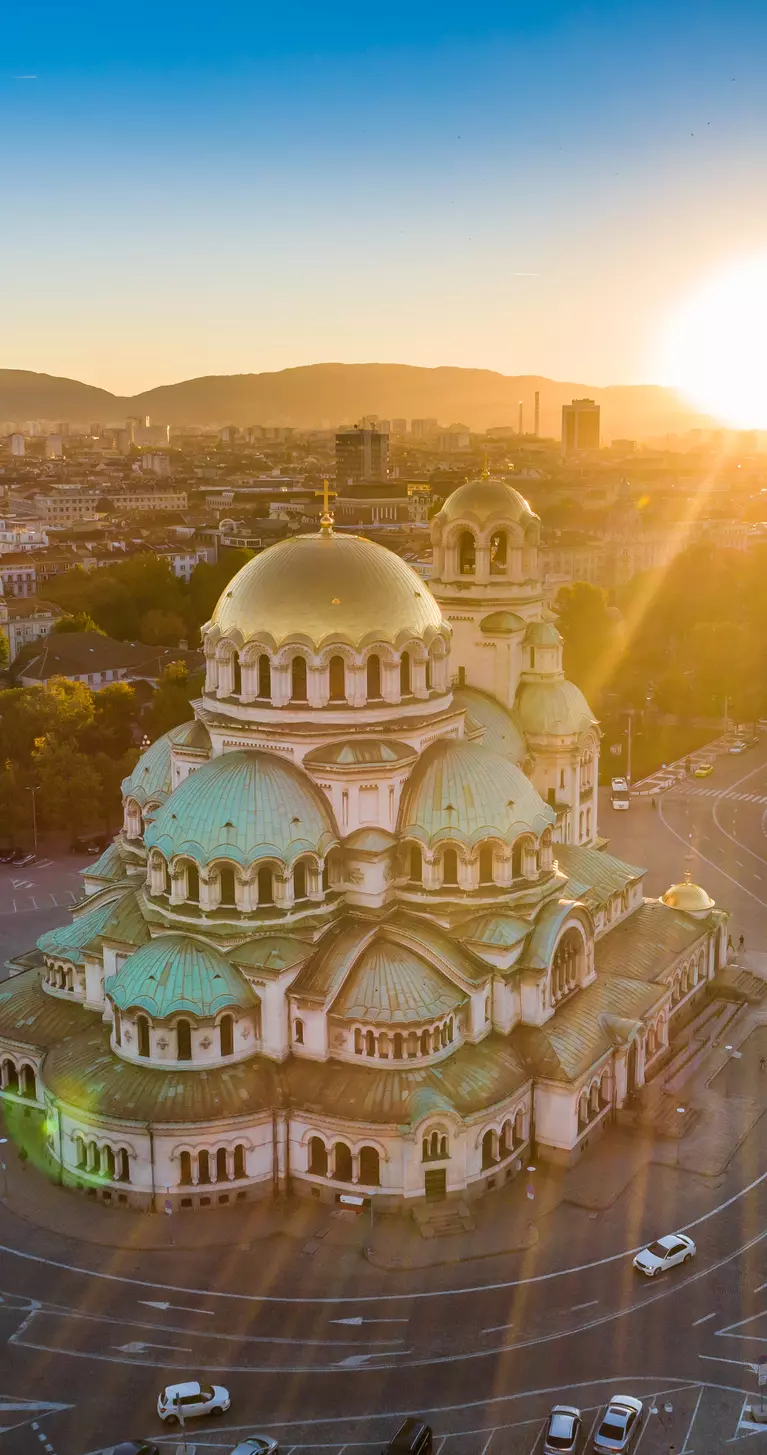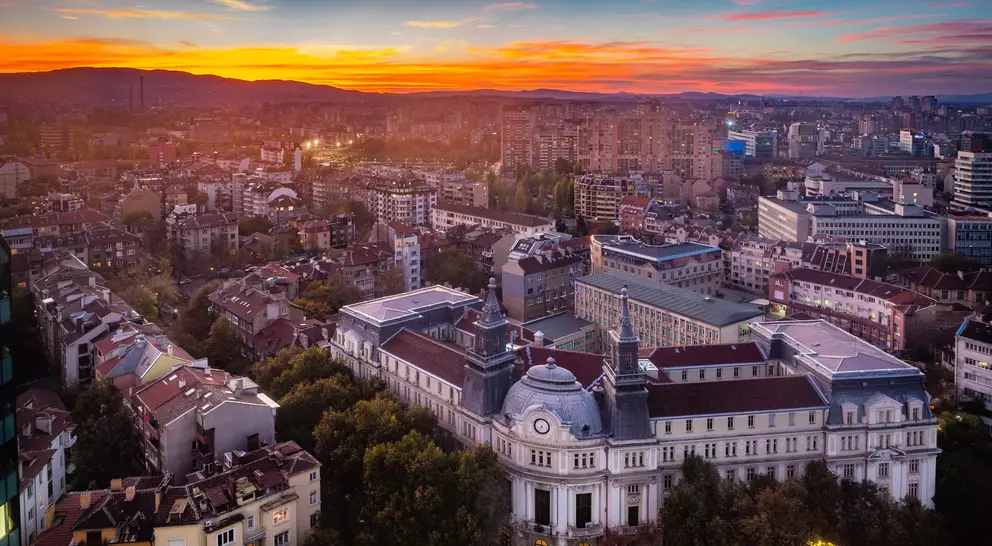US and Canadian citizens do not need a visa for stays of up to 90 days within a 180-day period. Your passport should be valid for at least three months beyond your departure date. If you plan to drive, an International Driving Permit is recommended in addition to your license.
Discover Tailor-Made Bulgaria Vacations
Discover Bulgaria’s cultural crossroads of history, nature, and vibrant traditions.
From ancient Thracian ruins to Orthodox monasteries and striking mountains, Bulgaria offers a journey through time and landscapes. Wander Sofia’s lively streets, explore Plovdiv’s Roman heritage, or escape to the Black Sea coast, where golden sands meet rich folklore.
Featured Highlights
- Explore Sofia’s mix of Roman ruins and modern energy
- Discover Plovdiv, one of Europe’s oldest continuously lived-in cities
- Hike in the dramatic Rila and Pirin mountain ranges
- Visit Rila Monastery, Bulgaria’s most iconic spiritual landmark
- Relax on golden sands along the Black Sea coast
- Experience folk traditions, music, and Balkan cuisine
What do Goway's travellers say?

Get to know Bulgaria before you go.
Best Time to Visit
Bulgaria offers travellers a year-round experience with dramatic seasonal contrasts, from sun-drenched beaches to snow-covered peaks. Summers along the Black Sea are vibrant and lively, while the crisp air of autumn, blooming springs, and snowy winters invite a different pace of discovery.
During June to August, Bulgaria’s seaside comes alive. Varna, often called the Sea Capital, transforms into a bustling hub of sunseekers, with its wide beaches, lively nightlife, and a seafront promenade perfect for evening strolls. Just outside the city, Pobiti Kamani, the Stone Forest, reveals a landscape of unusual rock formations and caves. Further south, Burgas charms with its laid-back atmosphere, spacious beaches, and the green expanses of the Sea Garden, where locals and visitors gather for quiet walks, family outings, and cultural events.
When the heat eases, September offers warm days with fewer crowds, making it an ideal time to explore. Spring is gentle, with blossoms and milder temperatures around 15–20°C, while winter belongs to the mountains. Ski resorts like Borovets and the slopes of Mount Vitosha promise powdery runs and alpine scenery, with hiking and biking trails welcoming adventurers once the snow melts.
Travelling across Bulgaria is straightforward, with good connections by air, rail, and bus, linking Sofia, Plovdiv, Varna, and Burgas to the country’s diverse landscapes. Whether you’re chasing coastal sunsets, mountain trails, or the buzz of city life, Bulgaria’s shifting seasons create a destination that rewards visitors time and again.
Places To Go
Handcrafted journeys to our most popular places to visit in Bulgaria
Sofia
Sofia is Bulgaria’s capital and largest city and is located in the western part of the country on...
Sofia is Bulgaria’s capital and largest city and is located in the western part of the country on the lower slopes of Mount Vitosha. The city has been settled for hundreds of years. The city gained...
Frequently Asked Questions
Do I need a visa or special permits to enter Bulgaria?
What language is spoken locally? How widely is English understood in Bulgaria?
Bulgarian is the official language, written in the Cyrillic alphabet. English is increasingly spoken in Sofia, Plovdiv, and coastal resorts, particularly by younger people and in the tourism industry. In rural areas, communication may be more limited, but gestures and patience usually go a long way.
What are the must-see attractions in Bulgaria?
Sofia offers a mix of Roman ruins, Ottoman mosques, and Orthodox churches, with the Alexander Nevsky Cathedral as a highlight. Plovdiv is one of Europe’s oldest cities, with a Roman theatre and colourful old town. The Rila Monastery, set in the mountains, is Bulgaria’s spiritual heart. The Black Sea coast features sandy beaches in Varna and Nessebar’s medieval old town. For nature, the Rhodope and Pirin Mountains offer hiking and skiing.
Is Bulgaria safe? What should I keep in mind while travelling there?
Bulgaria is generally safe, with low violent crime rates. Pickpocketing can occur in busy tourist areas and on public transport, especially in Sofia. Road conditions vary—urban driving can be hectic, and rural roads may be uneven. When hiking, be prepared for changing mountain weather.
What's the best way to travel within Bulgaria?
Trains and buses connect most cities and towns, with buses often faster and more frequent. Taxis are inexpensive but should be taken from official stands or booked by phone. Renting a car is a good option if you want to explore mountain areas or smaller villages. Domestic flights exist but aren’t usually necessary given the country’s size.
What Bulgarian cultural customs should I be aware of?
A quirk in Bulgaria is that nodding and shaking the head are reversed from what many travellers expect—nodding often means “no” and shaking means “yes.” Greetings are polite, usually with a handshake. Dress modestly when visiting churches and monasteries. Tipping 10% in restaurants is customary.
What should I wear/pack for Bulgaria's climate?
Bulgaria has four distinct seasons. Summers are hot, so pack light clothing, sunscreen, and a hat. Winters are cold and snowy, especially in mountain regions—warm layers and waterproof boots are essential. Spring and autumn can be unpredictable, so layers and a light jacket are useful. Comfortable walking shoes are a must for cobblestone streets and archaeological sites.
Unlock more by subscribing to our newsletter
With our newsletter, you’ll get access to regular communications that inspire you and help you explore the world your way